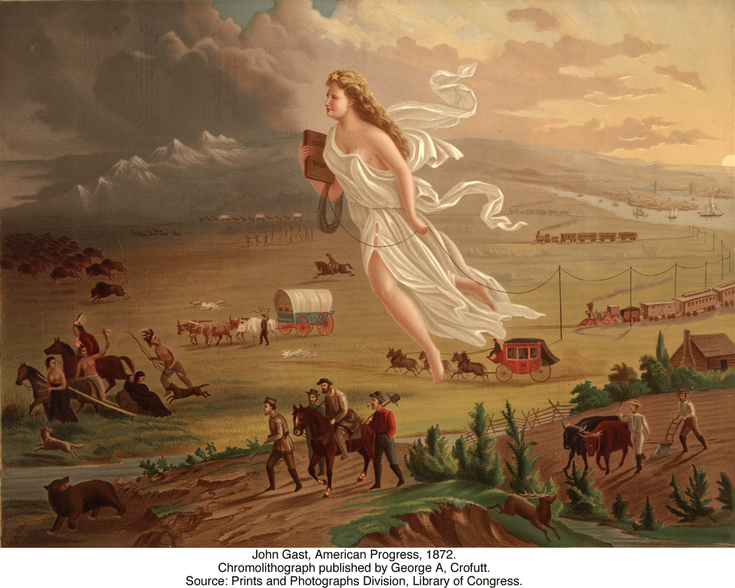John Gast, American Progress, 1872<br /> https://picturinghistory.gc.cuny.edu/john-gast-american-progress-1872/

John Gast, American Progress, 1872<br /> https://picturinghistory.gc.cuny.edu/john-gast-american-progress-1872/

His best known publication is his essay "The Significance of the Frontier in American History," the ideas of which formed the frontier thesis. He argued that the moving western frontier exerted a strong influence on American democracy and the American character from the colonial era until 1890.
frontier
The frontier has for a long time been an essential part of the identity of North America. In the United States, after the French and Indian Wars, people rapidly began to move out West on the "frontier" to create better lives for themselves. They saw the frontier as a land of great opportunity. Especially in America, there was so much fertile land that people would be able to move out westward and own massive areas of land to start agriculture on. But the frontier has also had many different motifs in the development of North America. The frontier was a very difficult place to live. Before the French and Indian Wars, white people on the frontier would constantly be harassed or even killed by Native Americans protecting their land. The frontier was also miles away from any substantial civilization so families were pretty much all on their own out there. It was seen as an area of grit and masculinity. Historian Frederick Jackson Turner talks about how the frontier was crucial to the development of American culture. He says that, "this perennial rebirth, this fluidity of American life, this expansion westward with its new opportunities, its continuous touch with the simplicity of primitive society, furnish the forces dominating American character." While here I focus on the expansion westward, the "frontier" extended both northward and southward. When people began to move to westward and northward into Canada, it had already been done before in America. This led to pre-legislation and treaties with the indigenous people that allowed for easier transitions and avoid creating another "Wild West".
Turner, Frederick Jackson. The frontier in American history. New York, NY: Henry Holt and Company, 1935.